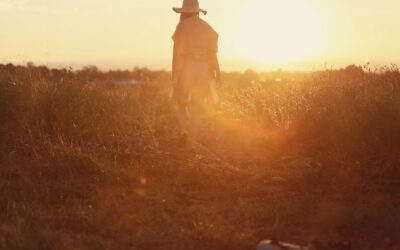Strong Families, Happy Kids
Parenting Tips from Prevent Child Abuse ArizonaStay Curious
Human beings make assumptions. That’s just how our brains work.
We take stock of what we’ve experienced and use that to make predictions about what will happen.
Assumptions are useful tools. If we have a gap in information, we’ll fill it with an assumption. We can even make up whole stories with one small piece of information, like a comment or a facial expression. Assumptions help us make quick choices in our fast-paced world.
The problem with assumptions, of course, is that they can be wrong, or partially wrong. And whether they’re wrong or right, assumptions shape how we choose to act towards others.
Choices based on false assumptions can be destructive.
Permission to Rest: Nothing Blooms All Year
It’s spring, which means the Prescott area is once again painted with all the rainbow colors, thanks to the blooming of so many wildflowers. Part of what makes this season unique is that the flowers have spent the winter dormant. They’ve been resting.
What if we could take a note from nature and permit ourselves to rest, too? We need to free ourselves from the tyranny of productivity, especially as the weather warms up and many activities resume.
My dear friend Emma, who works as an elementary school teacher in Detroit and lives her life with exemplary reflectiveness, shared a quote with me years ago that continues to resonate with me:
“Be patient with yourself. Nothing in nature blooms all year.”
Examine Your Standards
A few months ago, I had a checkup with my new primary care provider, who asked me a series of routine questions about my health habits. When she asked about exercise, I told her I ran about four miles, two or three times a week.
“How long does that take you?” she asked.
“About 30 minutes,” I replied.
“Well,” she said, “for heart health, you should be exercising at least 45 minutes.”
I raised my eyebrows. She went on to her next question. I chuckled to myself.
Forcing Change
My father, who is French, had an expression he used in my childhood moments of impatience: “Forcer, c’est casser.” It translates to “To force is to break.”
Take Your Time
At the beginning of the pandemic, when everyone was trying to get their bearings with lockdowns, work and life disruptions, and constantly changing information, a post circulated around social media that went something like this:
A choir is able to sustain a very long note not because everyone holds the note at the same time, but because singers take breaths when they need to, and then join back in.
Our work as parents (and as employees!) is like that too. In the effort not just to keep your family unit running, but also to strengthen it, you may feel like things will fall apart if you take a break or time away. It may even feel irresponsible to take a break when there’s so much at stake.
One Key to Good Parenting
I’ve been thinking a lot lately about what it takes to be a good leader, and how that crosses over into parenting. In conversations with leaders I admire, I’ve realized there’s one quality I respect most of all, and I believe this quality might be the most defining characteristic of a good leader … and a good parent.
When I write “leader,” I’m not necessarily referring to someone with a leadership title. A leader is someone who takes accountability for making a positive difference in the lives of others—and isn’t that what we do as parents?
So what is this quality? First, I’ll tell you what it’s not: It’s not charisma, confidence, knowledge, or vision.
Speaking Each Other Into Greatness: Why Affirmation Matters
It’s amazing how powerful a simple affirmation can be. Think about a time when a verbal nudge from a friend, family member, or colleague has encouraged you to take a leap into something new.
The Way We Show Up Can Give Meaning to a Difficult or Scary Situation
There’s a frequently cited quote by Mr. Rogers that’s often used to excavate the good from crises or tragedies. He told us to “Look for the helpers. You will always find people who are helping.”
He’s so right. But not everyone gets the kind of compassion that I experienced when they face a crisis. It is not just that we help. It is how we help. By offering help in a way that is understanding, kind, and nonjudgmental, we can be the difference between something painfully hard and something that’s hard, but doable.
One Simple Action You Can Take to Make People Feel Welcome, Connected, and Safe
This past November, Prevent Child Abuse America celebrated its 50-year anniversary in Chicago. The celebration included a discussion with Dr. Bruce Perry, who is a member of the board, and Oprah Winfrey, who is, well, Oprah.
As is quite typical of her, in her address to the crowd, Oprah said something deeply meaningful. She talked about one thing that all children need. It’s simple. It’s free. It takes only a second. And it’s the best gift that we can give to kids in our lives, all year round. It’s also the best gift we can give to each other.
Strong Families, Happy Kids: Parenting Tips from Prevent Child Abuse Arizona
Positive Child Experiences, also known as PCEs, are advantageous or benevolent childhood experiences that promote positive development and resilience among youth. Researchers have found that positive experiences can protect kids from the negative long-term effects of trauma and Adverse Childhood Experiences (ACEs), leading them to become healthier, happier adults.
So how do we, as a community, create more PCEs for all of our youth?
Help: Giving and Receiving It to Build a Supportive Community for Families
All parents and caregivers will need help at some point. Normalizing this is a huge step in supporting families in our community.
While well-meaning people are quick to say, “Let me know if you need anything,” when we see a family going through a tough situation, it’s rare that someone actually takes them up on the offer … because it’s vague and because asking for help is hard in a society that celebrates independence and grit.
A Book Recommendation: “Parent Nation” by Dr. Dana Suskind
“I just finished ‘Parent Nation’ by Dr. Dana Suskind. Folks, this is it. It beautifully articulates why we, as a nation, must support parents. If we want to promote child wellbeing and prevent child abuse, we need to support parents. If we want economic prosperity, we need to support parents. If we want a healthy nation, we need to support parents.
The book outlines why and how the U.S. doesn’t have things like paid parental leave and affordable quality childcare, and why that needs to change. In the name of preventing government overreach, we’ve left U.S. parents with nothing but bad options.












